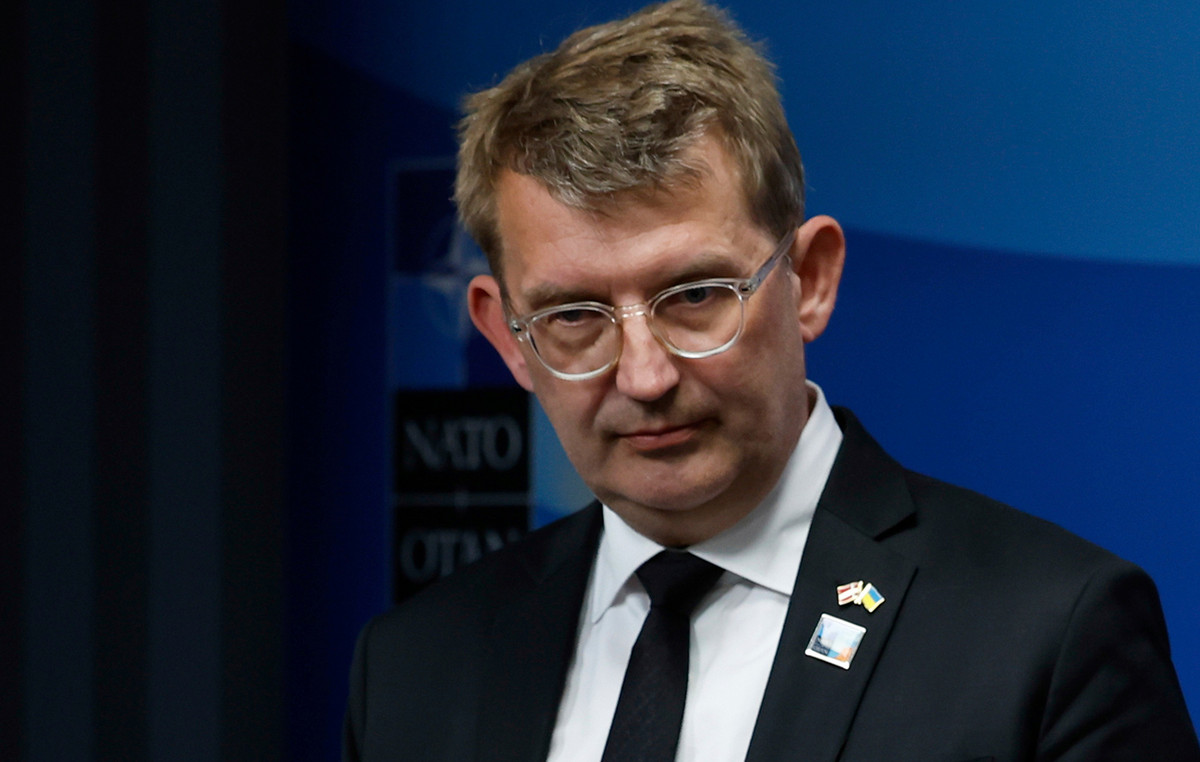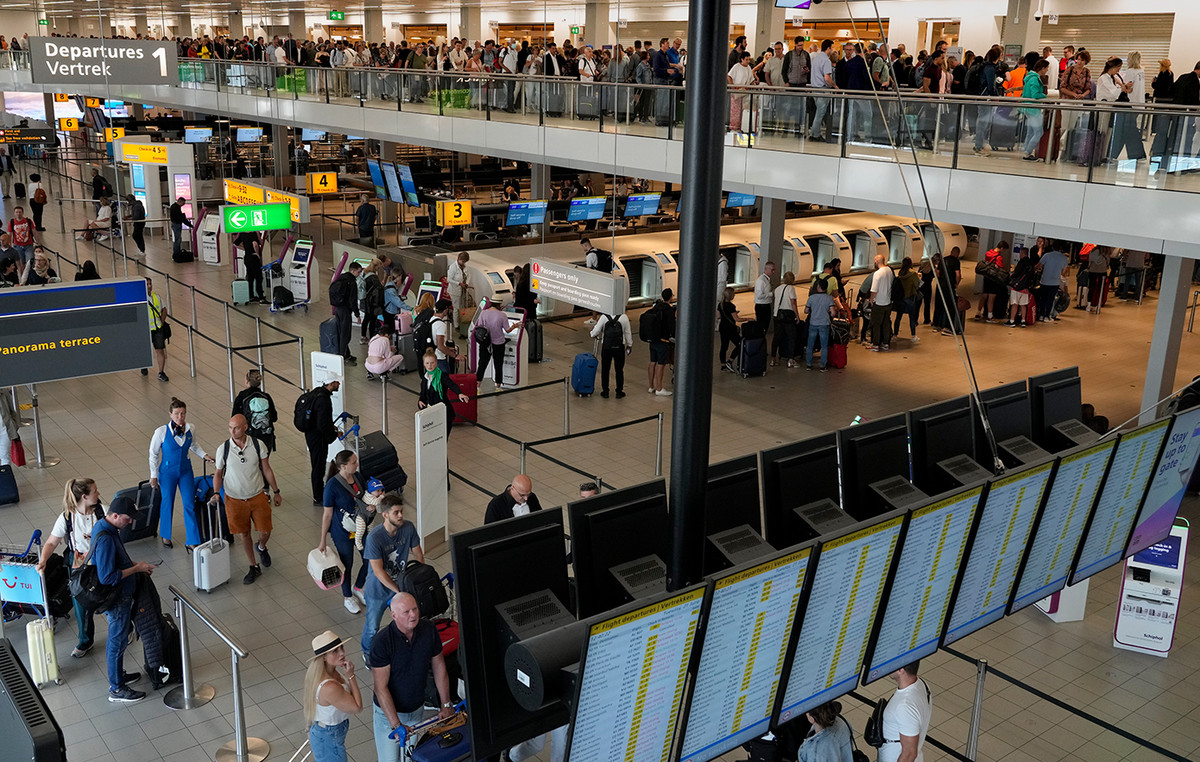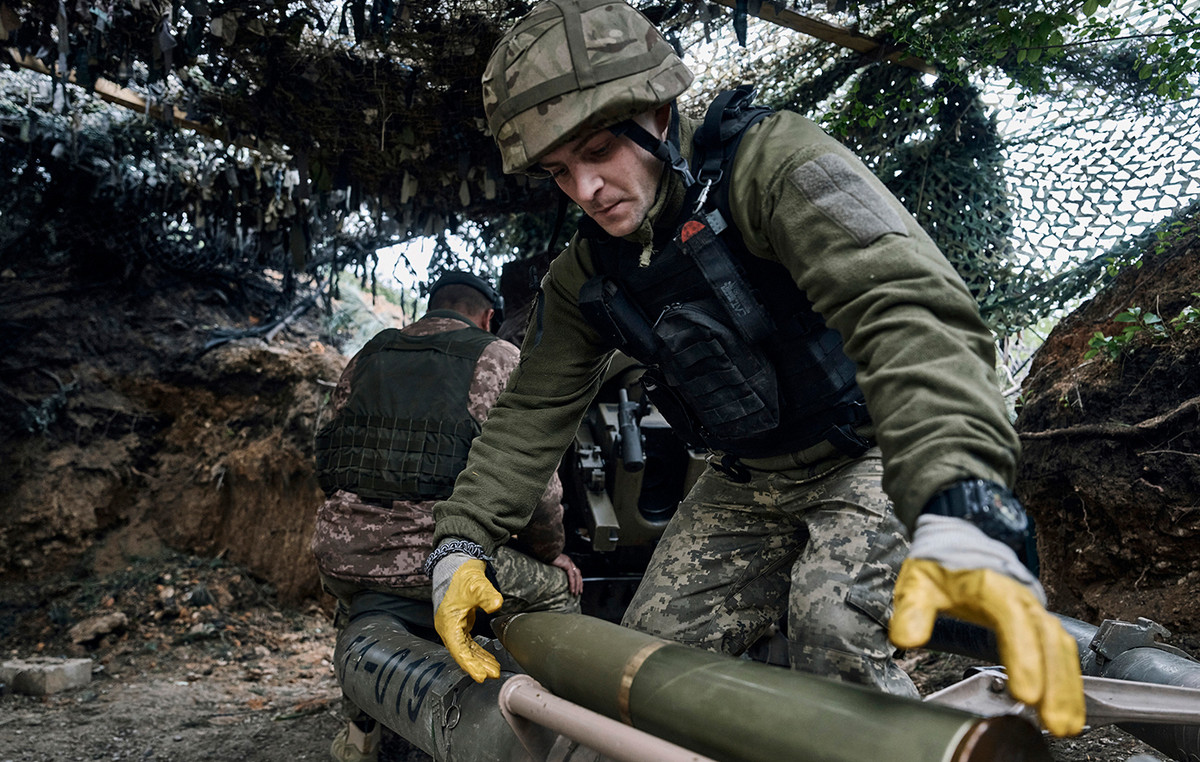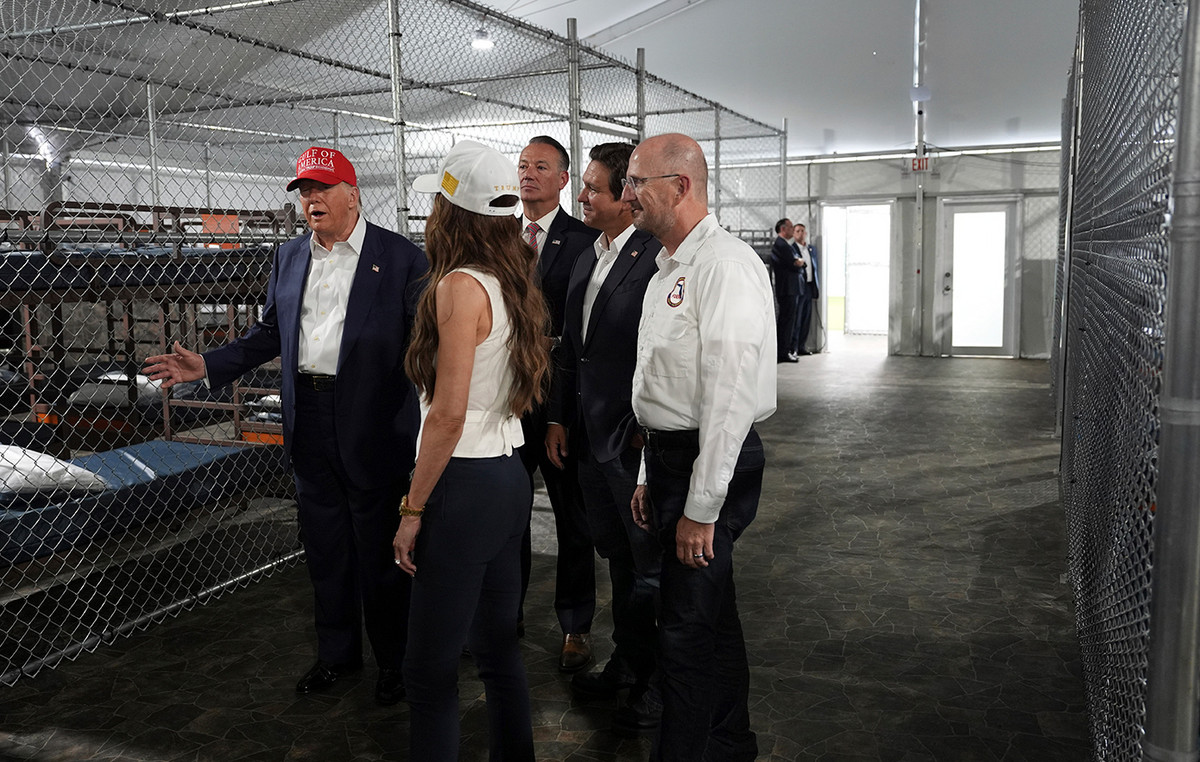Tensions are once again rising across the Taiwan Strait, with China launching military exercises encircling Taiwan just days after democracy swore in a new leader long hated by Beijing.
The exercises began in the early hours of Thursday (23), in an action that China described as “punishment” for “separatist acts” – alluding to the election and inauguration of the new president of the autonomous island, Lai Ching-te.
While relations between the two sides have deteriorated steadily in recent years, this latest escalation marks a significant test for Taiwan's new leader, whose ruling party has defended democracy in the face of growing threats from its authoritarian neighbor. .
The Chinese Communist Party claims Taiwan is part of its territory, despite never having controlled it, and has vowed to seize the island, if necessary, by force. And it has become much more belligerent under Chinese leader Xi Jinping.
Here's what you need to know.
What's going on with the exercises?
The Eastern Theater Command of China's People's Liberation Army (PLA) said it launched joint military exercises involving the army, navy, air force and rocket force in areas around Taiwan in the early hours of Thursday.
The exercises are being conducted in the Taiwan Strait – a narrow body of water that separates the autonomous island from the Chinese mainland – as well as north, south and east of Taiwan.
The maneuvers also take place in areas around Taiwan's outlying islands of Kinmen, Matsu, Wuqiu and Dongyin, located just off China's southeast coast, the command said in a statement.
Marine Colonel Li Xi, the command's spokesman, called the drills “a strong punishment for the separatist acts of the Taiwan independence forces and a serious warning against interference and provocation by external forces.”
China's military exercises are often as much for a domestic audience as they are to signal intentions internationally. Chinese state media extensively covered Thursday's exercises, while the military also posted images of one of its ships on social media. Subsequent exercises went viral on China's heavily regulated internet.

Taiwan's Defense Ministry said in a statement that it has dispatched sea, air and land forces to respond to China's drills. The body expressed regret for “irrational provocations and actions that undermine regional peace and stability.”
The island's presidential office said in a statement that it was “confident and capable of defending national security,” accusing China of “using unilateral military provocation to threaten Taiwan's democracy and freedom.”
What triggered this?
The most obvious answer is Lai's inauguration on Monday (20). The Progressive Democratic Party (PDP), now in power for a historic third term, views Taiwan as a de facto sovereign nation with a distinct Taiwanese identity.
Ahead of Taiwan's elections in January, Beijing had warned that a Lai victory could inflame tensions and provoke conflict – repeatedly framing the election as a choice between “peace and war.”
Taiwanese voters ignored these warnings, keeping the PDP in power – even though two opposition parties that favor closer ties with China now have a majority in parliament.
The Chinese government and state media regularly excoriate Lai, calling him a dangerous separatist, a “troublemaker” and a “warmaker,” while rejecting his repeated offer for talks. Void Chinese dislike for Lai is rooted in his political past as well as Beijing's refusal to deal directly with a large portion of Taiwan's leaders.
The 64-year-old former doctor and political veteran was once an outspoken supporter of Taiwanese independence – a red line for Beijing. His views have moderated over the years, and he now says he prefers the current status quo, stating that there is “no plan or need” to declare independence as the island is already “an independent sovereign country”.

But Beijing never forgave him for those initial comments — making its position clear with Thursday's drills.
Lai also set the tone for his new administration's approach toward China – using his inaugural speech on Monday to declare that a “glorious era of Taiwan's democracy has arrived,” and reiterating a determination to defend its sovereignty.
He also called on Beijing to cease its “bullying” of Taiwan and respect that its people want to decide their own destiny.
What is the relationship between China and Taiwan?
The bloody Chinese Civil War ended with the Chinese Communist Party seizing power on the mainland, establishing the People's Republic of China in Beijing in 1949. The defeated Nationalist Party fled to Taiwan, moving the seat of its mainland Republic of China government to Taipei . Both proclaimed themselves the only legitimate government of all Chinese territory.
In recent years, Taiwan has downplayed its territorial claims to mainland China, and today is a vibrant democracy, with its own military, currency, constitution and elected government.
But it is not recognized as an independent country by most governments in the world. Over the decades, it has become increasingly diplomatically isolated – with a growing number of governments shifting their diplomatic recognition from Taipei to Beijing. But unofficial diplomatic ties with many Western nations have actually been strengthened in recent years, thanks in part to threats from China.
Meanwhile, under Xi, China has become increasingly assertive in foreign policy and more authoritarian at home.
China has cut off official communication with Taiwan since the Democratic Progressive Party took power in 2016, and has increased economic, military and diplomatic pressure on the island.

At the same time, ties between Taipei and Washington have become more robust, with increases in arms sales and high-level political engagement under Lai's popular predecessor, Tsai Ing-wen. This angered Beijing, leading to increased pressure on Taiwan and causing cross-strait relations to deteriorate.
What is the US position on this?
The US formally switched diplomatic recognition from Taipei to Beijing in 1979 – but has long tread a delicate path.
In what is known as the “One China” policy, Washington recognizes the People's Republic of China as the only legitimate Chinese government; it also recognizes Beijing's position that Taiwan is part of China, but has never accepted the Chinese Communist Party's claim to sovereignty over the island.
The US maintains close unofficial ties with Taiwan, which have strengthened in recent years, and is required by law to provide the democratic island with the means to defend itself, and supplies the island with defensive weaponry.
American lawmakers visit Taiwan regularly and have supported legislation to bolster U.S. support for the island and its defensive capabilities. But they have historically remained deliberately vague about whether they would defend Taiwan in the event of a Chinese invasion, a policy known as “strategic ambiguity.”
Following the island's election in January, the US sent a bipartisan delegation to Taiwan, where they met with Lai and Tsai – and pledged that American support for Taiwan will continue regardless of who wins the next US election.
Beijing also announced on Tuesday (21) sanctions against former US House Representative Mike Gallagher, who led that delegation, citing his “comments and actions” that “interfere” in China's internal affairs.
Source: CNN Brasil
Bruce Belcher is a seasoned author with over 5 years of experience in world news. He writes for online news websites and provides in-depth analysis on the world stock market. Bruce is known for his insightful perspectives and commitment to keeping the public informed.







